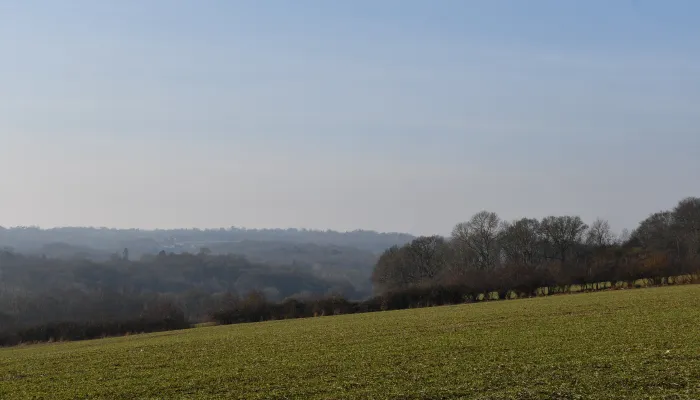Wilding and farming – a shared future
Our Hoathly Farm Appeal, which aims to purchase Grade III arable land and transform it into a wildlife haven, has sparked lively debate. Some fear that wilding will harm food security, but in truth, it can enhance and support farming.
Take Ham Fen Nature Reserve in Deal, for example. It’s the last remaining fenland in Kent, and due to climate change and nearby intensive farming, it nearly dried out. However, under our management, it has flourished into a thriving wetland that enhances flood resilience and supports the surrounding farmland.
Hoathly Farm presents a similar opportunity. This land, primarily low-grade arable used in a cropping rotation, has been worked hard for years. To meet market demands, it requires increasing amounts of artificial fertilizers and pesticides - inputs that are not only becoming more costly but also have unintended environmental consequences.
The clay soil at Hoathly Farm is prone to flooding from the River Teise and demands heavy intervention to produce decent yields. By regenerating the land and boosting biodiversity, we can improve soil health, reduce flood risks, and create a richer environment that benefits both farmers and wildlife.
This is a rare chance to reconnect landscapes and restore a thriving ecosystem in Kent. By linking Furnace Farm with Hoathly Farm, we can restore a landscape that has been depleted for decades, proving that nature and farming can be partners in a shared future.
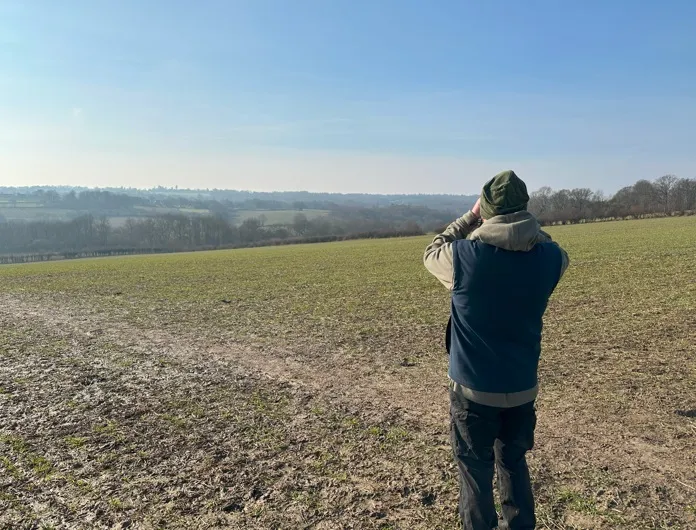
Meghan Strong
We are not wilding our food away
Food security is a real concern, and we hear it loud and clear. That’s why we’re actively supporting Farmer Clusters across Kent, providing a platform for farmers to exchange knowledge, trial innovative land management techniques, and work together to enhance biodiversity without sacrificing food production.
One such example is our regenerative farming project with farmers in the Weald and Medway, where we’re testing new methods to reduce artificial inputs on winter wheat. We are confident that farming innovations can support biodiversity, and we work hand-in-hand with farmers to continually test and refine new techniques.
Similarly, farmers in Marden are restoring habitats for the endangered turtle dove. Through collaboration, they’re demonstrating that conservation and farming can work side by side.
If Kent Wildlife Trust secures this land, it will be protected. In the event of severe food shortages, what we do at Hoathly Farm could be reversed, ensuring that the land is never permanently lost – unlike the areas of high-grade farmland which landowners have willingly sold to developers for house building.
Moreover, the land would benefit from the wilding process, richer soils would yield better crops with less pesticide use. In fact, what we want to do here might be the solution to ensuring our long-term prosperity.
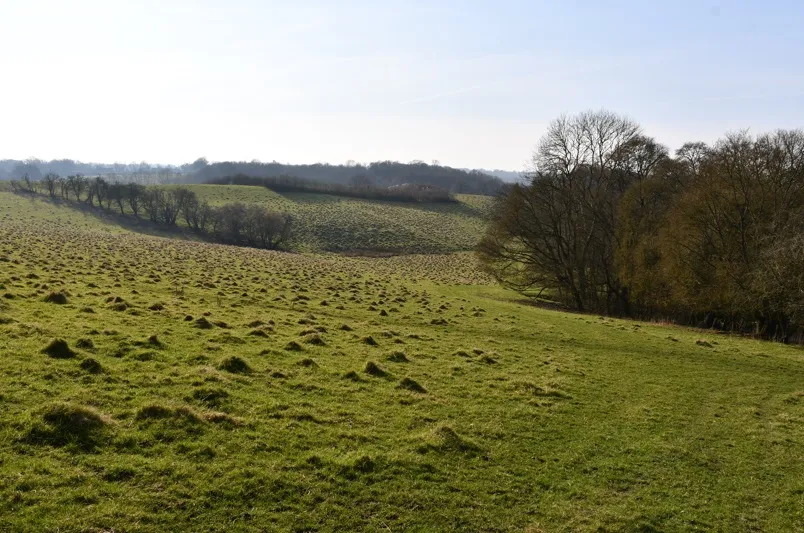
Sally Smith
Why farming needs nature
Our Bugs Matter survey has highlighted a concerning trend: flying insect populations are in alarming decline. These insects, especially essential pollinators like bees and butterflies, are the backbone of agriculture. Without them, crops suffer, yields drop, and food security is at risk.
By creating wildlife corridors and restoring habitats, we aren’t just protecting nature; we’re helping farmers produce healthier, more resilient crops. Pollinators boost yields, enhance crop quality, and reduce the need for artificial interventions, fostering a more sustainable farming future.
Wilding also plays a key role in flood prevention. Natural landscapes act as sponges, soaking up excess water and reducing runoff. Unlike intensive farmland, rewilded areas retain moisture, mitigating the risk of flash floods and soil erosion. Wetlands store and gradually release rainwater, while restored riverbanks slow water flow, protecting both rural and urban communities from extreme weather events.
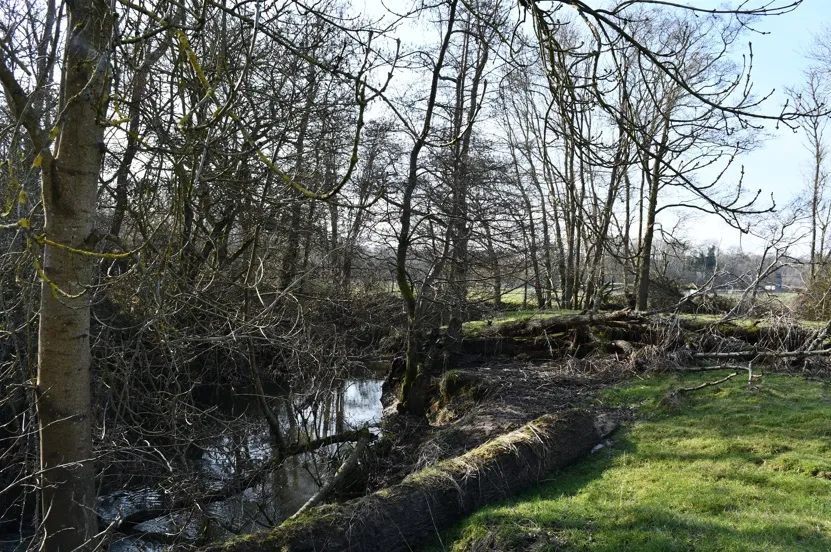
The elephant in the room: Biodiversity Net Gain (BNG)
The Hoathly Farm Appeal represents an opportunity to create sustainable income streams while restoring vital ecosystems. However, let's be clear: If BNG units are sold here, it would be to cover the cost of habitat creation and management for 30 years.
While BNG is a valuable conservation tool, it’s not our main motivation for pursuing this project. Our mission is far greater, this is about protecting and revitalising the landscape for future generations.
If we work with a developer seeking BNG units, before entering into agreements, we will undertake a full due-diligence process to ensure that the particular development aligns with Kent Wildlife Trust's high standards on sustainable development.
Divided we fall
In the face of a shifting political landscape, we’re increasingly aware of the pressures on both farmers and the environment. We’re seeing vast areas of high-quality farmland being earmarked for development, while irreplaceable wildlife habitats are under threat.
We will continue to work with policymakers to find the best solutions, but now more than ever, we must stand united. The Farmer Clusters initiative is the jewel in the crown of Kent Wildlife Trust, and we remain steadfast in our commitment to supporting nature-friendly farmers.
We will keep pushing for government policies that reward farmers for sustainable food production and environmental stewardship. Let’s not fall into the trap of turning against one another.
We are stronger together. By working side by side, we can ensure that farmers are rewarded for their role in both conservation and food production, securing a future where both thrive.
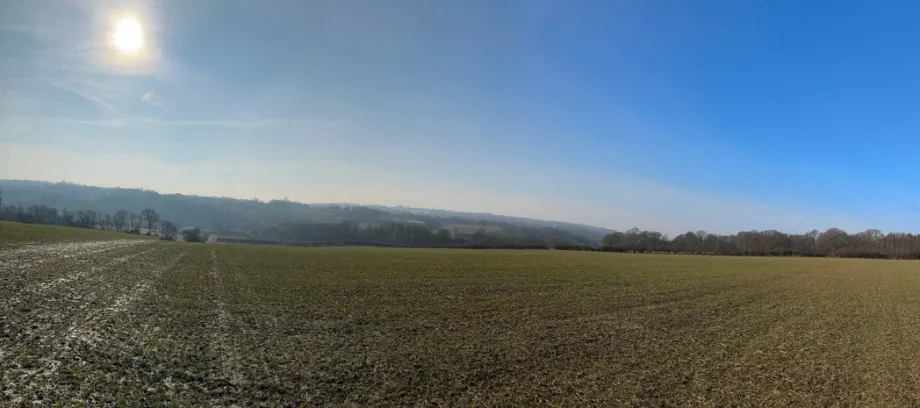
Sally Smith
Supporting Hoathly Farm: A once-in-a-lifetime opportunity
Now is the time to act. If we succeed in purchasing Hoathly Farm, we’ll be creating one of Kent’s most significant rewilding projects in recent years. Over 613 acres of land could be restored, reconnecting vital habitats and creating a near-continuous landscape for nature.
Wilder Grazing from Scotney Castle to the east will seamlessly merge with Furnace and Hoathly Farms, laying the groundwork for a wildlife corridor linking Kent and Sussex. Ancient landscapes, long converted to intensive agriculture, will be returned to nature, where wood pastures, species-rich meadows, and thriving woodlands will take root again.
But time is running out. Generous donors have pledged match funding of up to £500k, but we still need to raise another £500k to unlock this incredible opportunity. This is our chance to make a lasting impact for nature, farming, and future generations.
Will you stand with us?

